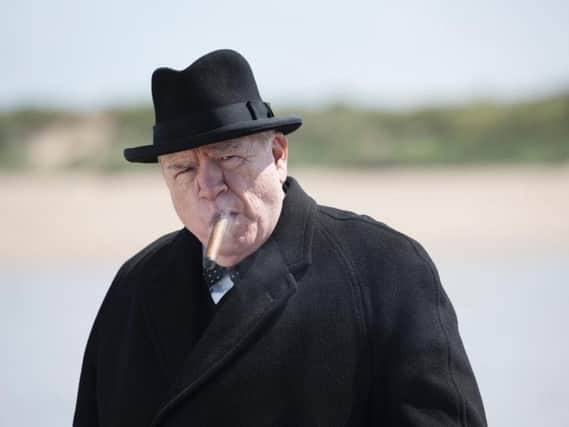New Scottish film and TV fund delivers £17.5m boost for economy


Danny Boyle's Trainspotting sequel T2 and a big-screen biopic of Winston Churchill were among the first beneficiaries of a scheme set up to persuade producers to set up base in Scotland.
In Plain Sight, a drama about the Scottish serial killer Peter Manuel, and The Loch, a new ITV murder mystery set on the banks of Loch Ness, were also supported after the fund was launched in September 2015.
Advertisement
Hide AdAdvertisement
Hide AdThe Scottish Government today confirmed that a further £250,000 had been added to the fund, which has spent £1.75m by the spring of this year, for future productions.
And it pledged that a new Scottish screen unit to coordinate support for the industry would be up and running next year.
A blueprint for the new body, which will sit within Creative Scotland, is expected to be produced by the autumn of this year and will set out an "agreed vision and strategy" for film and TV industries.
The spin-offs from the Production Growth Fund, which is run by Creative Scotland on behalf of the Scottish Government, are expected to help the overall value of the industry reach record levels when the final figure for 2016 is calculated later this year.
Advertisement
Hide AdAdvertisement
Hide AdExtensive filming on Churchill and T2, as well as the fantasy series Outlander, has already helped the value of productions in Edinburgh and the Lothians to record levels.
The fund is currently supporting Keepers, a new feature film on the Flannan Isles mystery, which Gerard Butler and Peter Mullan have been filming in the Galloway area.
Speaking at the annual Scottish Film Summit, held to coincide with the opening day of the Edinburgh International Film Festival, culture secretary Fiona Hyslop said: “Film and TV producers spent a record £53 million shooting in Scotland in 2015 – an increase of £30 million in the last ten years.
“One crucial initiative that has attracted major productions to base themselves in Scotland has been the Production Growth Fund, of which £1.75m had been awarded at the end of March.
Advertisement
Hide AdAdvertisement
Hide Ad"It has underpinned strong demand for our crew and our services, cemented trust in the excellence of our work and strengthened Scotland’s reputation as a base for big budget productions.
"It is attracting major productions to showcase Scotland and our breathtaking locations to audiences around the world, with clear knock-on benefits for our tourism sector.
“This is great news both for our screen industry and Scotland’s wider economy.”
Leading figures in the film and television industry have been unhappy with the level of support for the sector since the scrapping of the Scottish Screen agency seven years ago. Responsibility is currently shared between Creative Scotland and Scottish Enterprise.
Advertisement
Hide AdAdvertisement
Hide AdMs Hyslop added: "The screen unit will combine expertise from our creative and enterprise partners, and oversee support from development to production to distribution, prioritising input and advice from the industry itself.
"My fellow ministers and I share the sector’s wish for momentum and pace so I am pleased that this work – which is being taken forward in partnership – is now entering a new phase.
"I look forward to receiving, this autumn, a single blueprint which commands the support and commitment of all. It should include an agreed vision and strategy for the screen sector, with defined agency roles and contributions to enable joined-up service delivery to users.
"I know too that we will have to address the question of resources and one of the crucial tasks for the agencies this summer will be to consider all possible routes to funding an agreed and long-term action plan in a sustainable way."